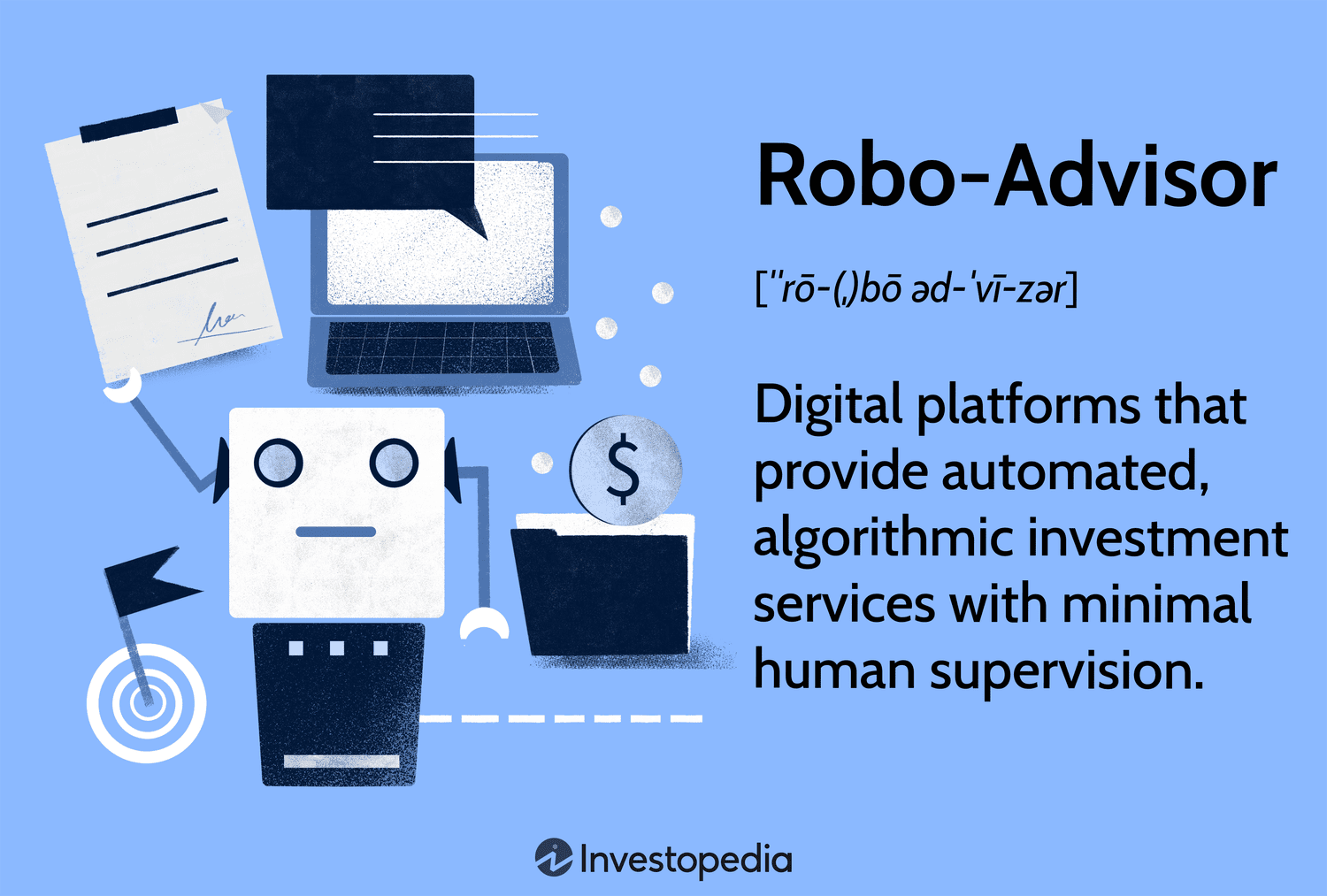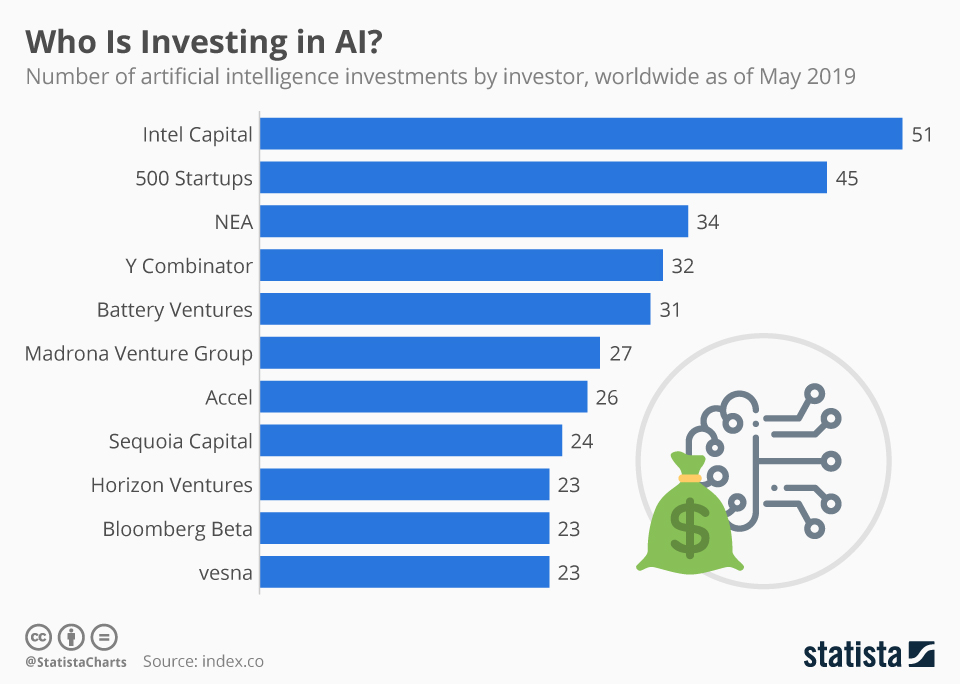Introduction
The financial world is undergoing a profound transformation, largely driven by the rapid advancements in Artificial Intelligence (AI). From sophisticated algorithms managing vast portfolios to personalized financial advice delivered by automated platforms, AI is reshaping how individuals and institutions approach investment. This article explores the burgeoning role of AI in finance, focusing on its impact on investment strategies, the rise of robo-advisors, and the future outlook for this dynamic intersection of technology and money.
AI's Impact on Investment Strategies
Artificial Intelligence is fundamentally changing how investment decisions are made, offering capabilities that far surpass traditional methods. AI-powered systems can analyze colossal datasets, including market data, news sentiment, social media trends, and even satellite imagery, to identify patterns and predict market movements with unprecedented accuracy. This capability allows for more informed and timely investment decisions, reducing reliance on human intuition and potential biases.
One of the most significant contributions of AI is in algorithmic trading. AI algorithms can execute trades at speeds and volumes impossible for humans, capitalizing on fleeting market opportunities. These algorithms are designed to learn and adapt, continuously refining their strategies based on new data and market conditions. This leads to optimized trade execution, reduced slippage, and potentially higher returns.
Furthermore, AI is revolutionizing risk management. By processing vast amounts of data, AI models can identify and quantify various risks, from market volatility to credit risk, with greater precision. This allows investors to build more resilient portfolios and implement dynamic hedging strategies. AI can also detect fraudulent activities and anomalies in financial transactions, enhancing security and compliance within the financial ecosystem [1].
Predictive analytics powered by AI is another game-changer. Machine learning models can forecast economic indicators, company earnings, and even geopolitical events that might impact financial markets. This foresight enables investors to proactively adjust their portfolios, positioning themselves to benefit from anticipated trends or mitigate potential downturns. For instance, AI can analyze earnings call transcripts and news articles to gauge market sentiment and predict stock price reactions, providing a significant edge to investors.
The Rise of Robo-Advisors
Perhaps one of the most visible applications of AI in finance for the average investor is the emergence and widespread adoption of robo-advisors. These digital platforms leverage AI and algorithms to provide automated, algorithm-driven financial planning services with minimal human supervision. Robo-advisors have democratized access to professional investment management, making it more affordable and accessible to a broader audience, including those with smaller portfolios.
Robo-advisors typically work by assessing a client's financial goals, risk tolerance, and time horizon through a series of questions. Based on this information, the AI algorithm constructs a diversified portfolio of low-cost Exchange-Traded Funds (ETFs) or mutual funds. The platform then automatically rebalances the portfolio to maintain the desired asset allocation and can even handle tax-loss harvesting to optimize returns [2].
The appeal of robo-advisors lies in their cost-effectiveness, convenience, and objectivity. They eliminate the high fees often associated with traditional financial advisors and are available 24/7, allowing investors to manage their portfolios at their convenience. Moreover, the algorithmic nature of robo-advisors removes emotional biases that can often lead to poor investment decisions during market volatility.
While traditional financial advisors still play a crucial role, especially for complex financial situations, robo-advisors are rapidly gaining market share, particularly among younger generations and those new to investing. The continuous improvement of AI algorithms means that robo-advisors are becoming increasingly sophisticated, offering more personalized advice and a wider range of services, blurring the lines between automated and human-led financial guidance.
The Future Outlook: AI and the Evolution of Finance
The integration of AI into the financial sector is still in its nascent stages, and its future potential is immense. We can expect to see even more sophisticated applications of AI, leading to a more personalized, efficient, and secure financial landscape. Here are some key areas where AI is poised to make a significant impact:
- Hyper-Personalization: AI will enable financial institutions to offer highly customized products and services tailored to individual needs and preferences. This includes dynamic financial planning, personalized investment recommendations, and even bespoke insurance policies, all based on an individual's unique financial data and behavioral patterns.
- Enhanced Fraud Detection and Cybersecurity: As financial transactions become increasingly digital, the threat of cyberattacks and fraud intensifies. AI, with its ability to detect anomalies and patterns indicative of malicious activity, will play an even more critical role in safeguarding financial systems and protecting consumer assets. Machine learning models will continuously learn from new threats, adapting their defenses in real-time.
- Improved Customer Service and Experience: AI-powered chatbots and virtual assistants are already transforming customer service in finance, providing instant support and answering queries. In the future, these AI agents will become even more intelligent, capable of handling complex financial inquiries, offering proactive advice, and providing a seamless customer experience across various channels.
- Ethical AI and Regulatory Frameworks: As AI becomes more pervasive in finance, there will be a growing emphasis on developing ethical AI guidelines and robust regulatory frameworks. This will ensure fairness, transparency, and accountability in AI-driven financial decisions, addressing concerns such as algorithmic bias and data privacy.
- Integration with Blockchain and IoT: The convergence of AI with other emerging technologies like blockchain and the Internet of Things (IoT) holds tremendous promise for finance. Blockchain can provide secure and transparent data for AI analysis, while IoT devices can generate real-time financial data, opening up new avenues for AI-driven insights and services, such as micro-lending based on real-time consumption patterns or automated insurance claims processing.
Visualizing AI in Finance
Figure 1: Artificial Intelligence is rapidly transforming the financial industry, enabling new levels of analysis and automation.
Conclusion
Artificial Intelligence is not just a technological advancement; it is a fundamental shift that is redefining the landscape of finance and investment. From empowering sophisticated algorithmic trading and robust risk management to democratizing investment access through robo-advisors, AI's influence is pervasive and growing. As AI continues to evolve, its integration with other cutting-edge technologies promises an even more personalized, efficient, and secure financial future. For investors and financial professionals alike, understanding and embracing the power of AI will be paramount to navigating the complexities and capitalizing on the opportunities of the modern investment world.
References
[1] SoluLab. (n.d.). AI in Finance: The Future of Money Management. https://www.solulab.com/ai-in-finance/
[2] Investopedia. (n.d.). What Is a Robo-Advisor?. https://www.investopedia.com/terms/r/roboadvisor.asp
[3] Statista. (2023). Chart: Who Is investing in AI?. https://www.statista.com/chart/30200/nvidia-stock-price-since-january-2023/
[4] MindInventory. (n.d.). AI in Fintech: How AI Will Change The Financial Industry.







.png)
.png)
0 Comentários